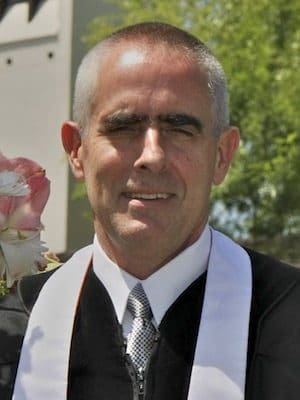
“There is no such thing as non-political Christianity.” The first time I stumbled across those words from Richard Rohr, they landed on my ears at an odd and awkward angle. Having spent a 45-year pastoral career trying to “keep politics out of the church,” I did not know what to make of his suggestion.
Part of the problem is that while Father Rohr is using the word “political” in the sense of a more just society, many of us upon hearing the word “politics” think of partisanship, as in political parties, which sadly, is polarized and polarizing. A frequently tense and occasionally acrimonious divide we earnestly yearn to avoid in the church.
And for good reason. The church is in the world to be an embodiment of the wide welcome of the whole kingdom of God— not yet another partisan silo in a world which is already home to more than enough echo chambers. Thus, there is an understandable fear of appearing politically partisan, which causes so many of us to draw such a clear boundary between politics and faith.
And yet, there are moral imperatives, social inequities, and human urgencies which the church cannot be silent, some of which are inextricably linked to public policy and often dependent on political action. All of this may be the sense in which, my discomfort with it notwithstanding, Richard Rohr’s adage, “There is no such thing as non-political Christianity” is, in fact, often true.
For example, in my work with Together for Hope for more just and equitable access to healthcare for all persons, I frequently introduce our work by saying something like, “We are working to close the healthcare coverage gap in Alabama, not as a partisan political issue but as a moral justice imperative.” I say “moral justice imperative” with great intention because there is no doubt in my mind about where Jesus would stand when it comes to access to healthcare.
I cannot speak for anyone else. But, in my opinion, to follow Jesus around in Matthew, Mark, Luke and John is to know that Jesus would want all persons to have full and equal access to relief from suffering and healing of illness with no social determinants blocking the path to health for anyone.
I say, “not as a partisan political issue” with equal intention because, while full and equal access to healthcare for all persons is a matter of public policy, it is not a republican or democratic issue. Full and equal access to basic healthcare is a right and true thing, not a red or blue thing.
However, while equal access to healthcare is not a partisan political issue, at some point, it does become a practical political issue as political action is required to pass legislation that creates the public policy for equal access to healthcare for all persons.
To speak of such things brings to mind the words of the late liberation theologian Dorothee Soelle who said,” All theology eventually becomes political.”
In my own spiritual journey, these practical truths from Richard Rohr and Dorothee Soelle have resulted in me drawing this conclusion. I have read Genesis 18:19, Proverbs 21:3, Isaiah 1:17, Jeremiah 22:3, Micah 6:8 and Amos 5:18-24. These passages make clear God’s relentless passion for a just world for all persons.
In Matthew 7:12 and Matthew 22:34-40, Jesus is reported to have called us to love and care for all others as we wish to be loved and cared for. Therefore, basic human justice has become my standard against which the issues of the day are measured and the sieve through which all public policy questions must pass on their way to being answered.
For example, if the question is about racial justice or immigration policy, access to shelter for those who are without housing, access to nutritional food for those who are experiencing food insecurity, or access to healthcare for all persons, the larger question is, “What does the cumulative weight of the prophets and the gospels say?”
This is different from the civil religion of Christian nationalism, which seeks cultural hegemony by enlisting the power of the state in support of a particular way of being Christian. The ethic that I am speaking of is not cultural hegemony for one perspective, but social justice for all persons. social justice which most often rises from the conviction that we are all bound to one another in what Martin Luther King, Jr. so memorably described as “a web of mutuality.”
To see all persons as children of God bound to one another in a web of mutuality is to see that all cannot be fully well for any of us until all is finally well for all of us.
This may be a part of what Dorothee Soelle had in mind when she said that all theology eventually becomes political. All our faiths are distinct and different from one another, but the deepest and best theology of Hinduism, Judaism, Buddhism, Christianity, Islam, and Sikhism calls us to a life of love for all persons.
All of them draw us to a life of empathy and solidarity with those who are struggling and suffering. This, in turn, causes us to yearn for a more just world.
It is a deep and relentless fire-in-the-bones kind of yearning, which sometimes becomes “political”— never contributing to the partisan divide but always working for the common good. It is loving our neighbor as we wish to be loved.
After 45 years of pastoral life, during which he served churches in Georgia, North Carolina,Washington DC, and Jackson,Mississippi, Poole retired in 2022. He is the author of eight books, including The Path to Depth (Nurturing Faith Books, 2022), as well as numerous published articles and the lyrics to three hymns.

